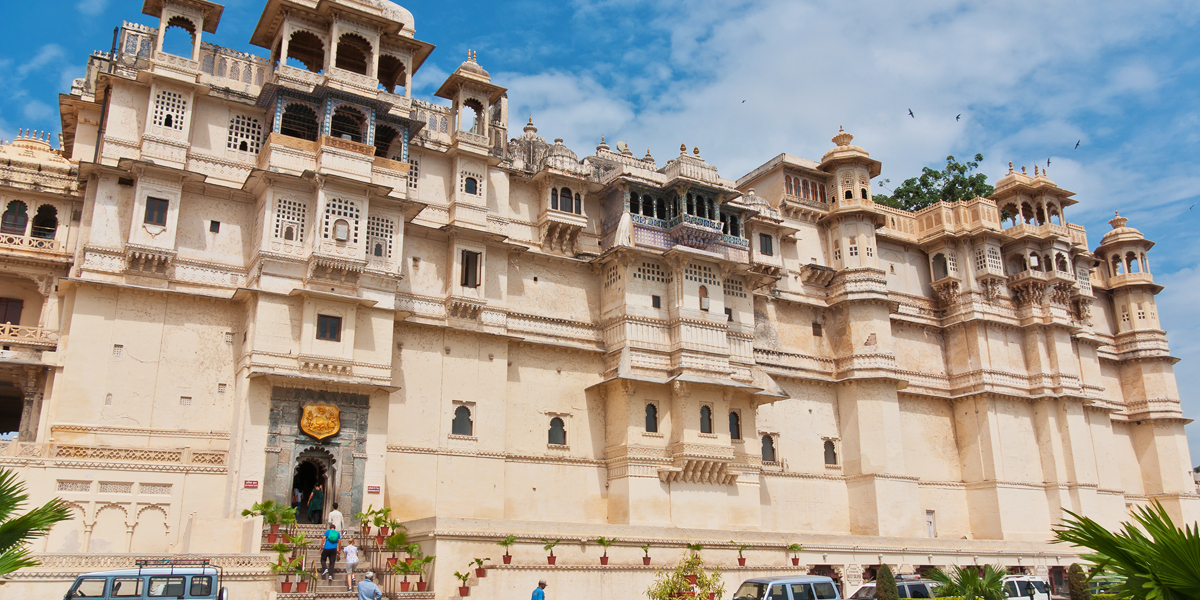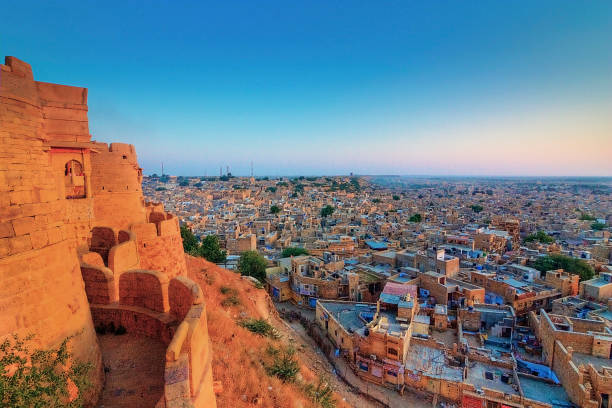The City Palace Udaipur is situated in the heart of Udaipur City as back then Maharanas (Kings) of Mewar used to handle all the administrative jobs from this palace. It was built over 400 years ago, hence is considered as one of the most important historical place in Udaipur.
Udaipur’s City Palace is an example of the splendour that the rulers of Mewar enjoyed centuries ago, and it still appears to be just as magnificent. It is located on the eastern banks of Pichola Lake. The palace is a fusion of Rajasthani, European, Chinese and Mughal architecture, making it one of the most appealing factors of Udaipur. The palace complex houses monuments like the Monsoon Palace, Lake Palace, Jagdish Temple, Jag Mandir, and Neemach Mata temple, and it is surrounded by the Aravalli Mountains, giving it a gorgeous background.
History of the City Palace
The city of Udaipur along with the Palace was built by Maharana Udai Singh II and completed by his successors for the next 400 years. The palace is a historic landmark as the kings ruled and administered their kingdom from this seat. The palaces were also a sight of political unrest and feuds with attacks by the Mughals and later by the Marathas. In 1974, a part of the City Palace and the Zenana Mahal were transformed into museums.
In The City Palace Premises
1. Pols
As described before, there are several gates in the Palace premises namely ‘Bara Pol’, ‘Tripolia Pol’ and ‘Hathi Pol’. Another door arrives when we reach the main block of the palace that is a perfect example of the traditional Rajputana style carved and painted with martial animals.
2. Bada Mahal
Bada Mahal is a Garden Palace, placed on a height of 90 feet; because of its high height if you look out of a window from a ground-floor room of the Bada Mahal, you’ll feel that you’re looking out of a fourth-floor room.
3. Amar Vilas
It is the peak point of the Palace with towers, terraces, hanging gardens and fountains.
4. Chini Chitrashala
This is an art place that displaces various paintings of Chinese art.
5. Bhim Vilas
This is basically an art gallery that displays the life stories of Lord Krishna and Goddess Radha.
6. Dilkhusha Mahal
This Palace is considered as the Palace of Joy and displays various wall-paintings and murals.
7. Choti Chitrashali
This is another art gallery that displays little pictures.
8. Fateh Prakash Palace
It has now been converted into a hotel and contains various artifacts of crystal like sofas, chairs, crockeries, table fountains etc.
9. The Durbar Hall
The Durbar Hall was used as a venue for all the functions and meetings back then, it was also used as a banquet hall.
10. Krishna Vilas
This is another art gallery that displays the festivals, games and processions of the Maharanas.
11. Manak Mahal
It is also called as ‘Ruby Palace’ that contains several porcelain and crystal figures.
12. Laxmi Vilas Chowk
This is another art display that contains various Mewar paintings.
13. Mor Chowk
This place displays various Peacock mosaics in the wall depicting the seasons- summer, winter and monsoon.
14. Sheesh Mahal
It is a palace of mirrors built for Maharani Ajabde by his husband Maharana Pratap.
15. Museum
The City Palace Museum was initially a ‘Zenana Mahal’ (Ladies Chamber) and was transformed into a public museum.
16. Rang Mahal
This was the area where the royal treasure was stored.
Timings and Entry Fee
Timings: 9.30 AM to 5.30 PM (last entry 4.30 PM)
Entry Fee for Palace: Rs.30 for Adults, Rs. 15 for Child
Entry Fee for Museum: Rs.250 for Adults, Rs. 100 for Children and Rs. 250 for Camera
Boat Ride: Rs.400 for Adult, Rs. 200 for Child
Boating Timings: 10 AM to 2 PM in winter and 10 AM to 3 PM in summer
Light & Sound Show Timings: 7.30 PM to 8.30 PM (Sept - March) and 8 PM to 9 PM (May -August)
Light & Sound Show Fee:
Hathnal Ki Chandani: Rs. 200 for Adult, Rs. 150 for Child (May -August) and Rs. 500 for Adult, Rs. 200 for Child (Sept - March)
Manak Chowk: Rs. 150 for Adult, Rs. 100 for Child (May -August) and Rs. 200 for Adult, Rs. 100 for Child (Sept - March)


